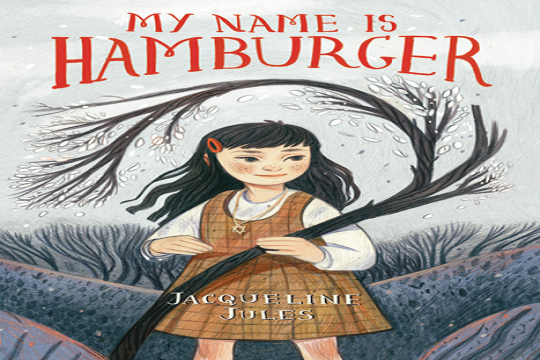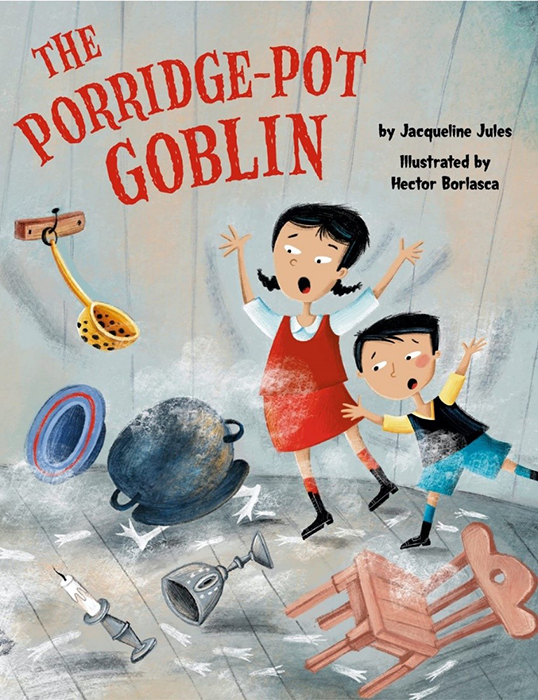At the onset of the Covid-19 pandemic, I wiped down groceries, counters, and doorknobs. I hoarded hand sanitizer. In March 2020, when scientists still knew very little about the virus, even the mail didn't feel safe.
Anxiety surrounded me like the thousands of invisible spirits the rabbis describe in the Talmud. In B'rachot 6a, the rabbis say there could be as many as ten thousand demons floating by your right hand. They rub against you and ruin your clothes. They bruise your feet and weaken your knees. If you want to prove their existence, you can sprinkle ashes around your bed at night. In the morning, you will see three-toed footprints.
The rabbis of the Talmud acknowledged the presence of demons. Waiting, whispering, plotting demons. Life back then was plagued by illness, accident, and adversity. Maternal and infant mortality were common. Maybe the concept of demons lurking in dark corners was a metaphor for the uncertainty of existence.
But what about the advice to sprinkle ashes in order to see the tracks of demons? Were the rabbis making a point with their description of a demon's foot? It was said to resemble a rooster. A human foot is significantly bigger than a rooster's foot. Were the rabbis suggesting we should assess the size of a demon before hiding in fear?
I spent months hiding inside my home after Covid-19 was declared a global health emergency. During that time, the Talmudic description of evil spirits resonated with me. It was certainly how I felt, surrounded by invisible threats just outside my door. Since I am a children's author, I channeled these fears into a picture book featuring a supernatural spirit. In "The Porridge-Pot Goblin," siblings Benny and Rose work together to prevent a mischievous goblin from waking their exhausted mother and ruining Shabbat. At first, they are terrified to think they are facing a goblin as big as Mama's porridge pot. When they realize the goblin is not the size of a porridge pot, they create a plan to drive the pesky spirit away.
While writing about a demon cleverly defeated by children, I explored a tool that helped me emerge from my pandemic mentality. Rose and Benny in "The Porridge-Pot Goblin" come to realize that an accurate assessment is needed to manage a threat. Imagining the goblin as being bigger than it was made them feel helpless.
I also felt helpless, huddled in my home, relying on deliveries (a huge privilege I acknowledge) rather than exposing myself to possible infection. For two and a half years, I visited with friends only outside. I questioned every decision to leave the house. I'm 66 and married to a blood cancer patient. Long after many people discarded their masks and began to travel, my husband and I remained at home. Isolation became our way of life. Socializing in person felt too risky.
The emotional toll of avoiding social interaction was crushing me. But I wasn't sure I was right to rejoin the world. My immunocompromised husband is particularly susceptible to the worst Covid-19 outcomes. His doctor can't promise he is protected by booster shots or antibody treatments. He has been advised to stay away from crowded venues. But I have had three booster shots. Should I stay hidden in the house, too?
I wasn't sure how to measure the danger realistically. The rabbinic advice to make an effort to see invisible demons gave me courage to go on with life in spite of my fears.
Vaccines, treatments, masks, and other mitigation measures have proven to lessen the severity of Covid-19. The pandemic is no longer featured as headline news. Even the CDC has relaxed its guidelines (for better or worse).
Once I was able to see Covid-19 as a demon of a certain size, but no bigger, I could make my first trip to the post office. I was still wearing a mask, and continue to do so in public places, but at least I wasn't avoiding the simplest of errands for fear of an errant germ. From there, I began to lose my fears of shopping at a drug store, riding in a car with a friend, or voting in person. While I acknowledge that it was my privilege to hide away and still have access to food and basic needs, I also acknowledge that each step into the world again is a psychological triumph for me. I am taking it slow, but little by little, I am learning to live in the wake of the pandemic.
Related Posts

Community and Tzedakah at Hanukkah: An Interview with Authors Joelle Reizes and Rabbi Joseph B. Meszler

My Shabbat Castle


